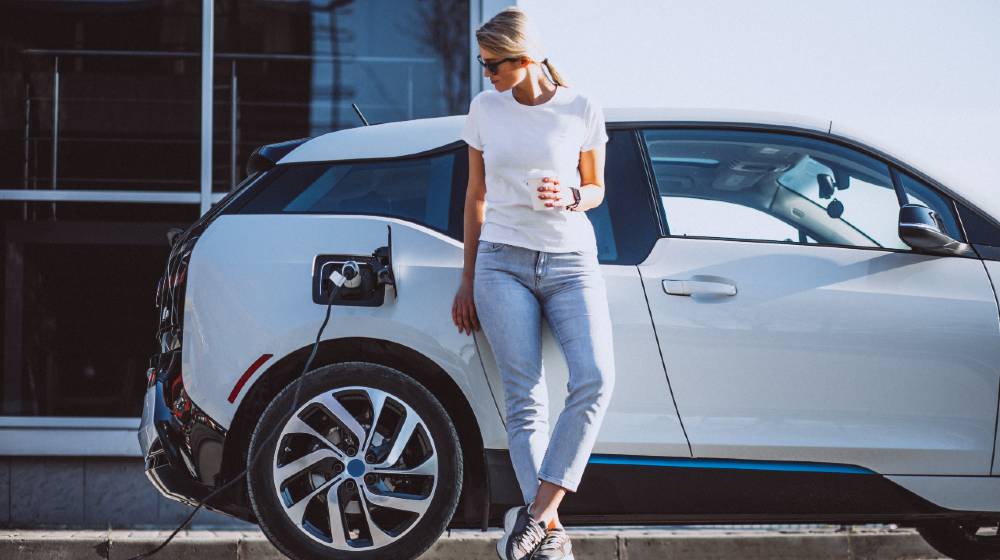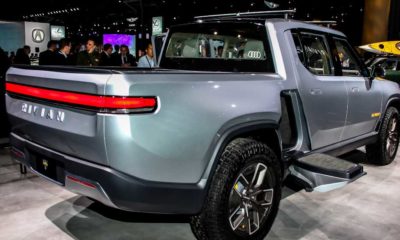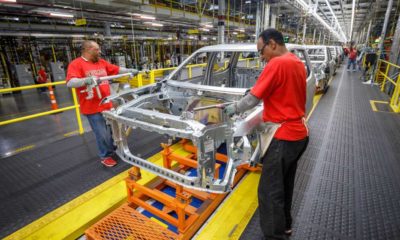Business
Electric Vehicles To Hit 66% Of All Car Sales by 2040

By 2040, Passenger electric vehicles will take up two-thirds of total sales, with Europe and China leading the transition. This is according to Bloomberg New Energy Finance’s Economic Transition Scenario.
RELATED: Electric Cars Projected to Make Waves Through Oil and Other Global Industries
Electric Vehicles
The adoption of electric vehicles is currently accelerating thanks to improvements in battery density and cost. Also, the installation of more charging ports and eco-friendly government initiatives supporting EVs are helping grow the sector.
However, these efforts still need more push if the world will meet its net-zero emissions targets by 2050. Countries will need to implement more initiatives to make road transportation emission-free.
However, the potential is already there. Governments and oil companies have yet to realize the extent of the developments made by electric vehicles. New research by Bloomberg NEF suggests that battery prices will go down further. Within this decade, EVs will also become a more economic option compared to gasoline or diesel cars in many countries.
By 2040, 35% of New Car Sales Will Be Electric Vehicles
The Bloomberg NEF study said that sales of electric vehicles are projected to hit 41 million by 2040. This comprises 35% of new light-duty vehicle sales. To give an idea of how big this increase is, the 2040 projection will be 90 times the equivalent EV sales in 2015. In turn, 2015 is 60% higher than the previous year.
The projected increase between 2021 and 2040 means that implications will be felt outside the automotive industry. If EVs will account for 25% of all cars on the road by 2040, that means the world will save 13 million barrels of crude oil a day.
However, the increase in electricity consumption will jump by 1,900 TWh. This is almost 8% of all electricity consumed in 2015.
For Electric Vehicles To Grow, Battery is Key
Colin McKerracher, the lead advanced transportation analyst at Bloomberg NEF, said that battery development is key. He said: “At the core of this forecast is the work we have done on EV battery prices.
Lithium-ion battery costs have already dropped by 65% since 2010, reaching $350 per kWh last year. We expect EV battery costs to be well below $120 per kWh by 2030, and to fall further after that as new chemistries come in.”
Meanwhile, Salim Morsy, the study’s author and Bloomberg NEF senior analyst also commented. “Our central forecast is based on the crude oil price recovering to $50, and then trending back up to $70-a-barrel or higher by 2040.
Interestingly, if the oil price were to fall to $20 and stick there, this would only delay mass adoption of EVs to the early 2030s,” he said.
Market Currently Dependent on Early Adopters
Right now, the EV market is heavily dependent on “early adopters” keen to try out new technology or reduce their emissions. They also want to avail of government incentives offered in markets such as China, Netherlands, and Norway. While there are around 1.3 million electric vehicles sold, this comprises less than 1% of light vehicle sales last year.
EVs come in two categories. The first is battery-electric vehicles, or BEVs, that get their power solely from batteries. The second is plug-in hybrid electric vehicles or PHEVs. These have rechargeable batteries that also have conventional engines as a backup.
At the moment, the Nissan Leaf is the best-selling BEV over the last six years. Meanwhile, the Chevrolet Volt holds the title of best-selling PHEV.
EVs Will Soon Be More Cheaper to Own and Maintain
Removing any subsidies, a BEV’s cost of ownership will become cheaper compared to internal combustion engines by the middle of this decade. This assumes that a BEV with a 60kWh battery will travel 200 miles between charges.
These long-range BEVs will hit the market within the next year or so with the release of the Chevy Bolt and Tesla Model 3.
Watch The Damage Report video answering the question: Will US Phase Out Gas Cars?!
Do you see EVs in your future vehicle purchase plans in the near future? Do you plan on buying electric vehicles once your present vehicle needs a replacement?
Let us know what you think about the EV revolution. Share your thoughts below.








3 Comments
What most ev manufacturers won’t tell you is the real world range. What they will tell you is if you drive 60 to 75 mph your avg range is around 300 miles. Have they driven on the interstate lately. Most people drive at least 75 -80 mph. This cuts into the range dramatically. Not to mention if your carrying a family of four. So I would need to stop and spend 20-30 minutes to recharge if I’m traveling more than 300 miles. NO THANKS ! I will keep my gasoline powered vehicle. Not to mention the up front cost. EVs would not survive if the govt didn’t subsidize them
1500lbs added weight makes no sense as energy consumption is proportional to vehicle mass. Furthermore since 60% of generating plants are Fossil powered you’re only placing the combustion products in someone else’s backyard. Even more damning is the need to double present generating capacity to deal with this. What do you think the price of electricity will be then?
Anytime the federal gift has to subsidize a product for it to survive in a free market economy it’s usually because the consumer has determined the product is impractical or the govt has an agenda or both. In the case of evs it’s both. To date evs are impractical and costly. There will probably be more efficient evs in the future with the enhancement of battery technology but the issue remains, where is the power going to come from. There’s only been one nuclear power plant built in the last 25 years. The avg age is 39 yeara. The majority of power is generated from natural gas and coal which environmentalists are against. California is having to deal with rolling black outs because of the lack of power plants. Let’s add evs to that power grid and see what happens. Bad idea